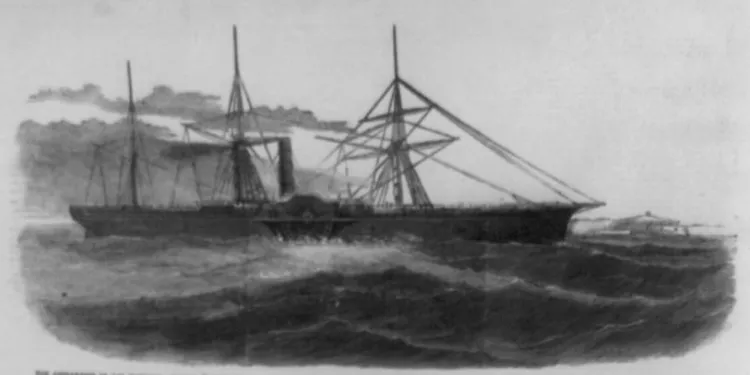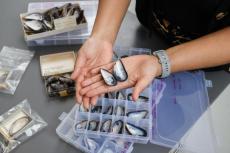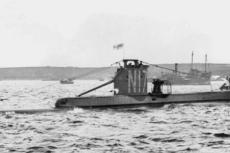Finders of SS Central America cannot keep gold hoard
Federal judge in Virginia has ruled that the explorers cannot cite “finders keepers” as justification for claiming that treasure as their own.
SS Central America, known as the Ship of Gold, was a 280-foot (85 m) sidewheel steamer which sank in a hurricane off the coast of the Carolinas in September 1857, along with more than 420 passengers and crew and 14 tonnes of gold with an estimated value of $300 million on today's market.
With so much money on the line, ownership of the loot has been entrenched in legal battles ever since its discovery by Columbus-America Discovery Group in 1989.
In 1990, a Virginia federal court awarded 90 percent of the gold to salvor-in-possession Columbus-America Discovery Group, with the remaining 10 percent to be divided among insurance underwriters.
Significant amounts of gold and artifacts were recovered and brought to the surface. Thirty-nine insurance companies filed suit, claiming that because they paid damages in the 19th century for the lost gold, they had the right to it. The team that found it argued that the gold had been abandoned. After a legal battle, 92% of the gold was awarded to the discovery team in 1996.
In March 2014, Recovery Limited hired the Odyssey Marine Exploration group to conduct further archeological recovery and conservation of the remaining shipwreck. Those operations managed to find and recover gold and artifacts which had initially gone overlooked, including an 80-pound gold ingot that sold for $8 million.
Denied title
But U.S. District Judge Rebecca Beach Smith on Aug. 11 denied Recovery Limited title to the wreck, finding that salvage rights preclude the maritime law of finds, which was intended for naturally occurring valuables, such as ambergris and whales.
"A free finders-keepers policy is but a short step from active piracy and pillaging," Smith wrote. "Were this court to allow Recovery Limited Partnership, the current salvor-in-possession, to enjoy immediate title to the artifacts it has recovered since early 2014, then the court would risk an 'unsupervised rush to the site to recover anything that could be grabbed.' The public interest in historic shipwrecks would be diminished, if such an 'unsupervised rush' to sunken treasure were to result."
A free finders-keepers policy is but a short step from active piracy and pillaging,
- Log in to post comments
























